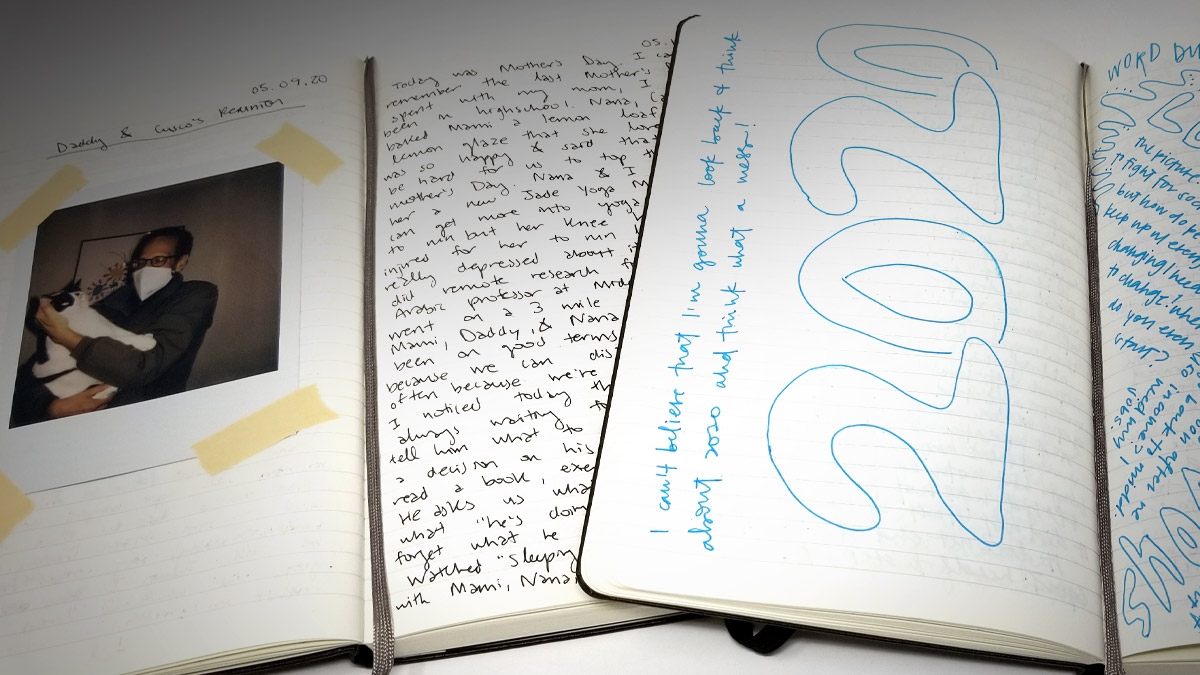Projects

COVID-19 Diary Project
In the spring of 2020, the Twilight COVID-19 Diary Project enlisted a diverse group of students to document their day-to-day lives.
The diaries describe the lived experiences of 35 students from seven nationalities, in 13 states, living in three countries.
2020
COVID-19 Diary Project
In the spring of 2020, the Twilight COVID-19 Diary Project enlisted a diverse group of students to document their day-to-day lives. The first group of diarists are documenting their lives now.
Patriarchal Power and the Built Environment of Campus Space
Cheryl Engmann ’22 and Ella Houlihan ’21
This project, led by Professors Erin Sassin and Edward Vazquez of History of Art and Architecture, will interrogate the relationship of Middlebury College’s built environment—including seemingly banal spaces and structures—to the maintenance and sanctioning of patriarchal power on campus. Particular stress will be placed on the study of quotidian spaces, precisely due to their “everydayness” and potentially less obvious relationship to power dynamics and violence.
Histories of Disability and (In)Accessibility
Kyle Wright ’19.5
This student-led project will, via rigorous archival research, critically interrogate constructions of disability and concomitant structures and cultures of ableism and accessibility. This undertaking will pay particular attention to both the built environment of the physical campus and institutional participation in the pathologization of particular identities and bodies in the shape of past professors’, administrators’, and guests’ thoughts on eugenics, disability, and access.
2021
Naming Middlebury: Memory, Power, and Place
Paige Osgood ’23
This historical interrogation will explore the naming of buildings and monuments on campus and uncover the histories of the people after whom they are named. To this end, as a community, we shall reevaluate the histories that are memorialized and celebrated on campus and the meanings they carry.
Histories of BIPOC Athletes at Middlebury College
Ellie Thompson ’22 and Jordyn Johnson ’23
Athletics have been a big part of the institution’s history for more than a century, particularly their relationship to wealth and white privilege—as cultures and structures. Since that time, students of color have had marginalized/marginalizing experiences in college athletics. This project, led by Ellie Thompson ’22 and Jordyn Johnson ’23, will gather histories and experiences of the challenges BIPOC athletes have faced.
Archives of Anti-Racist Activism
Rama Somborac ’23 and Mia Pangasnan ’23
This project will collect and document the actions taken by student, faculty, and staff activists while shedding light on the knowledge they have produced regarding the institution. To this end, the project, via the critical gaze of past activism, will foreground which mechanisms and manifestations of systemic racism activists have targeted, thus providing further direction to our institutional anti-racist work.
Historical Acknowledgment: a Reading/Viewing/Listening List on Indigenous Dispossession and Middlebury College
Khasai Makhulo ’23 and Theresa Nguyen ’21
Following the administration’s approval of an official Middlebury College acknowledgment of its use of Abenaki lands, this project will provide the campus community and beyond with historical materials pertaining to the Abenaki history of the land on which the College sits as well as the history of its colonial repossession as French-claimed land and subsequently part of the Vermont Republic and state. How does the history of this land relate to broader colonial and contemporary structures of Indigenous dispossession? What has been the College’s relationship to the Abenaki community since its founding in 1800?
Archives of Queer Life at Middlebury
Regina Fontanelli ’22
This project will explore the records we have of queer life on campus, and how far back it goes. What public stories and lesser-known experiences of queer students, faculty, and staff can we trace across time? What has queer activism on campus denounced, challenged, and demanded? What sorts of anti-queer discourses have circulated on campus and informed anti-queer structures, past and present? How has the College, as an institution and social community, propagated structures of heterosexism and gender binarism?
William Slade’s Anti-Slavery at Middlebury, Town and College
Shaye Anis ’21.5
To be undertaken individually by Shaye Anis ’21.5, this project will build upon a paper he researched and wrote for Professor William Hart’s Twilight Project winter term course. Shaye will now pay particular attention to the life of William Slade, Class of 1807, and his anti-slavery work as a College alum, a lawyer in the town of Middlebury, and his broader relationship to national abolitionist goals and figures (including Fredrick Douglass).
2022
The Lives of Disabled Students at Middlebury – Past to Present
Mary Moore ‘22.5
This project seeks to collect a series of oral histories from Middlebury alumni who identified as disabled during their time at Middlebury (or, who later in life describe themselves as disabled during their time at Middlebury).
History of Sexual and Reproductive Health at Middlebury
Khasai Makhulo ‘23
This project seeks to trace the history of sexual and reproductive health at Middlebury College. The project will tackle this subject by looking at sexual and reproductive health education in Middlebury, college responses to national sexual health policies and crises, and student activism on the topic.
Middlebury and the Middle East
Kaveh Abu Khaleel ‘26 and Mars Etgü ‘26
The project has two main lines of research, first focusing on the history of Middle East relations and media coverage on campus, and second investigating the presence of Middle Eastern students on campus and their political and self-advocacy.
2023
Black Vermont Farming
Crystal Zhou ‘23.5
In volunteering and connecting with Black farmers (and other farmers of color), Crystal is interested to see how Black Vermont farmers build resilience, joy, and solidarity through food sovereignty, afrocentric regenerative agriculture, and community oriented earth work.
2023 Clifford Symposium
The Twilight Project’s focus for 2023 was the annual Clifford Symposium, themed “Twilight at 200: Race and the Academy,” which highlighted the work of the Twilight Project and investigated Alexander Twilight’s legacy and race in higher education from Twilight’s time to present day.

